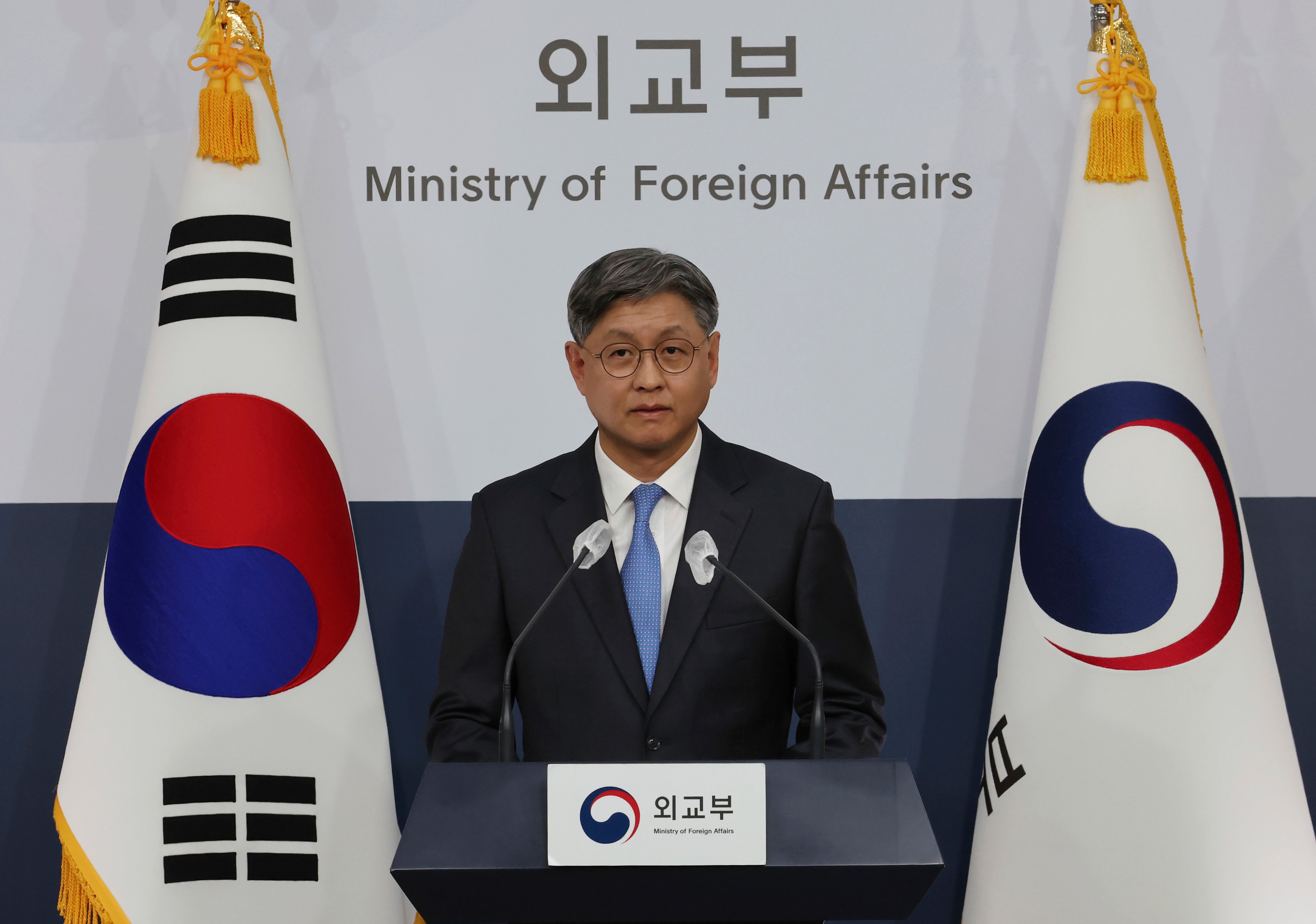S. Korea, Iran summon each other's envoys over Yoon comment
South Korea and Iran have summoned each other’s ambassadors in a diplomatic spat triggered by South Korean President Yoon Suk Yeol’s comments describing Iran as the “enemy” of the United Arab Emirates during his trip to the small Gulf nation this week

South Korea and Iran have summoned each other’s ambassadors in a diplomatic spat triggered by South Korean President Yoon Suk Yeol’s comments describing Iran as the “enemy” of the United Arab Emirates during his trip to the small Gulf nation this week.
While visiting to South Korean special forces stationed in the UAE on Monday, Yoon described the hosts as South Korea’s “brother nation” tied by growing economic and military cooperation, and then compared the threat UAE supposedly faces from Iran to the threat South Korea faces from nuclear-armed North Korea.
“The security of our brother nation is our security,” Yoon said. "The enemy of the UAE, its most-threatening nation, is Iran, and our enemy is North Korea.”
Yoon’s remarks triggered an irritated response from Iran’s Foreign Ministry, which said it was investigating Yoon’s “interfering statements.” South Korea’s government insists Yoon was trying to encourage the South Korean troops in the UAE and didn't intend to comment on Iran’s foreign relations, urging against an “unnecessary overinterpretation" of his comments.
South Korea’s First Vice Foreign Minister Cho Hyun-dong on Thursday called in Iranian ambassador Saeed Badamchi Shabestari to the ministry to explain Seoul’s stance “once again,” ministry spokesperson Lim Soo-suk said in a briefing. Lim said the meeting came after Iran’s Foreign Ministry summoned South Korea’s ambassador to Tehran over Yoon’s comments.
Lim said Shabestari during his meeting with Cho said he would “faithfully” convey Seoul’s explanation of Yoon’s comments to his bosses in Tehran, but didn’t provide further details about the conversation.
“As we explained several times, (Yoon’s) reported comments were meant to encourage our troops serving their duties in the UAE, and had nothing to do with Iran’s foreign relations, including South Korea-Iran relations,” Lim said. “Our government’s will to develop relations with Iran remains unchanged.”
Yoon’s comments, which have been criticized by his political opponents at home as a “diplomatically disastrous,” came as the UAE attempts to hedge in its relationship with Iran, a major business partner. The UAE also is home to around 3,500 American troops at Al Dhafra Air Base, a naval outpost in Fujairah and other locations.
The Emiratis have spent billions of dollars purchasing South Korean surface-to-air missile systems in part of efforts to protect itself against aerial threats. Those threats include long-range drone attacks by Yemen’s Iran-backed Houthi rebels — weapons likely built by or with Tehran’s help.
South Korea has found itself squeezed by the tensions over Iran’s collapsed nuclear deal with world powers, with billions of dollars in Iranian funds remaining in Seoul, frozen by American sanctions. Iran held a South Korean oil tanker for months in 2021 amid the dispute.
Bookmark popover
Removed from bookmarks